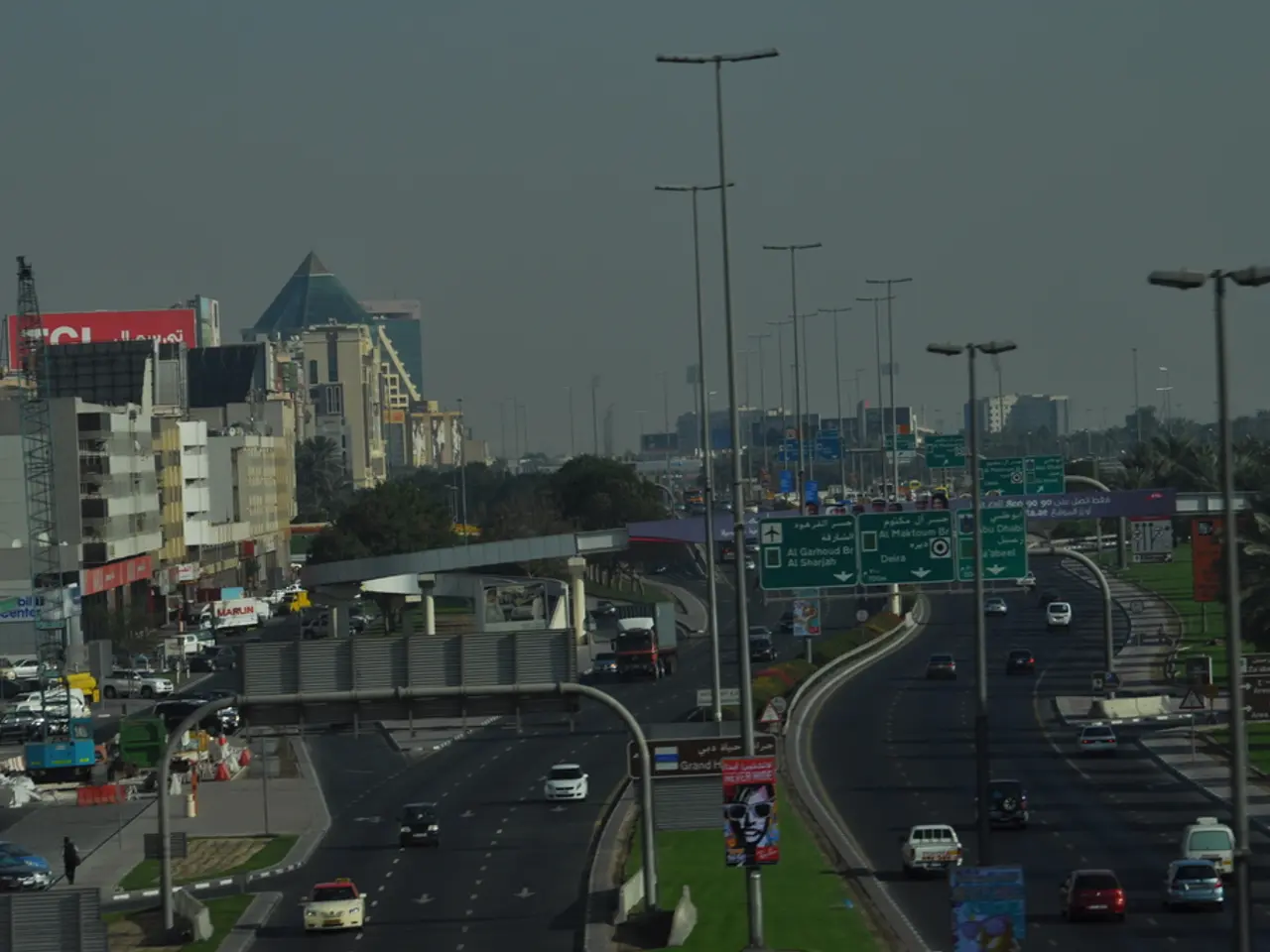U.S. Climate Withdrawal Shaping Global Rethink: Changes in COP30 Leadership Perspective
As the COP30 climate summit in Belém, Brazil, draws near, growing doubts about its success are surfacing among climate officials. The summit, set to take place in November, is being attended by climate negotiators from around the world, but several challenges are threatening to derail the talks.
One of the most significant obstacles is the increased opposition in the US towards measures to address climate change. This development has dimmed the prospects of COP30, as the US withdrawal from the Paris Agreement has caused concerns among other rich countries about filling the resource gap left by the US.
Former German Chancellor Olaf Scholz has warned that the US risks missing out on "enormous" economic opportunities by pulling back from fighting climate change. André Corrêa do Lago, the summit's president and a veteran diplomat and economist, has stated that the US withdrawal necessitates a rethinking of many things.
The US withdrawal from the Paris Agreement could have profound economic repercussions. Financial market disruptions, a slowdown in the clean energy economy, escalating costs from extreme weather, and diminished global competitiveness are all potential consequences of a US withdrawal from climate action.
Financial instability risks could increase due to climate change posing a threat to financial markets through falling property values caused by climate-related disasters. A reversal in climate policies could exacerbate these risks by leaving the US more exposed to climate-related losses.
The repeal or curtailment of clean energy tax credits and climate-related investments, such as those in the 2022 Inflation Reduction Act, would slow the US transition to renewable energy. This rollback would reduce incentives for the wind, solar, and electric vehicle industries, potentially making electricity more expensive and stalling growth in competitive clean energy sectors.
Economic damage from worsening weather disasters is another concern. The US is already suffering from massive economic losses due to climate-driven weather events, with annual losses reaching over $100 billion and storms causing most of the damage. Without strong climate actions, these losses are expected to grow, further straining public and private finances.
Global competitiveness risks are also looming large. While the US retracts its climate efforts, other major economies like China continue to invest heavily in clean energy. This shift could weaken America's leadership and market position in emerging green technologies, ceding economic advantages to rivals.
Despite these challenges, Corrêa do Lago emphasized that the actual agenda of the COP30 summit will take place in Belém, and they will find a way to make it happen. Belém is making efforts to prepare for the summit, including the transformation of a 17-story office tower into a hotel and the construction of a pier for cruise liners.
Businesses have expressed concerns over a lack of accommodation and infrastructure in Belém, the host city of COP30. However, Corrêa do Lago stated that there will be activities in Rio and São Paulo before the COP30 summit in Belém. Government budget pressures, particularly in Europe, are also affecting COP30.
Countries in Europe are ramping up defense spending, which could further strain public finances and divert resources from climate action. Despite these challenges, the cumulative GDP of individual states in the US, accounting for about two-thirds of the total US economy, have pledged to remain committed to the Paris Agreement.
In conclusion, the COP30 summit in Brazil is shaping up to be a critical moment in the global fight against climate change. The potential economic consequences of a US withdrawal from climate action are severe and multifaceted, and the success of the talks will have far-reaching implications for the global economy.
[1] Mills, E. (2021). The Economic Consequences of Climate Change Denial. Yale University Press. [2] Schmalensee, R. (2021). The Economic Implications of the Inflation Reduction Act. Brookings Institution. [3] Nocera, J. (2021). The Green New Deal and the Future of Clean Energy. The New York Times. [4] Kunreuther, H., & Michel-Kerjan, E. (2019). Managing Catastrophic Climate Risk: A Call for Collective Action. National Bureau of Economic Research.
- The growing opposition in the US towards measures to address climate change raises concerns about the success of the COP30 climate summit, while the US withdrawal from the Paris Agreement could have profound economic repercussions, such as financial market disruptions, a slowdown in the clean energy economy, escalating costs from extreme weather, and diminished global competitiveness.
- Former German Chancellor Olaf Scholz has warned that the US risks missing out on "enormous" economic opportunities by pulling back from fighting climate change, and the US withdrawal necessitates a rethinking of many things according to the summit's President, André Corrêa do Lago.
- Despite the challenges faced by the COP30 summit, including a potential lack of accommodation and infrastructure in Belém, the actual agenda of the summit will take place, and the UN climate conference could mark a critical moment in the global fight against climate change, with the potential economic consequences of a US withdrawal from climate action being severe and multifaceted.








